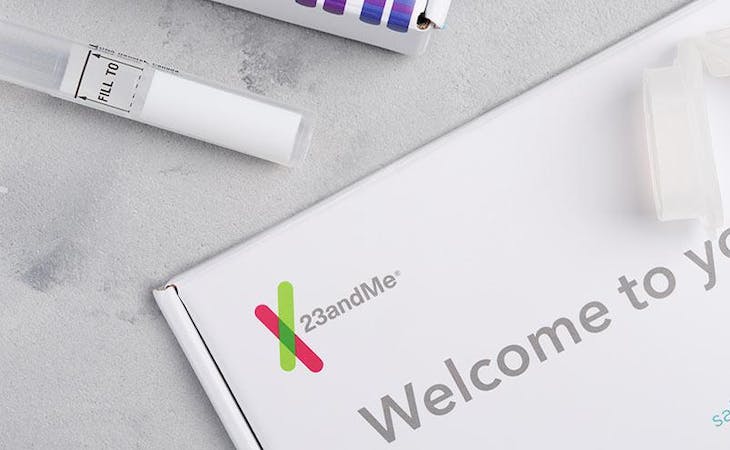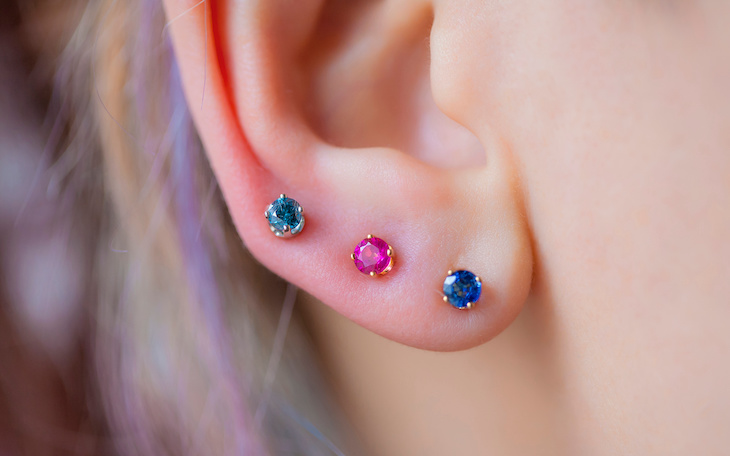Based on my genetics, I’m more likely than the average person to get dandruff, more likely to be afraid of heights, and more likely to prefer chocolate ice cream over vanilla. At least that’s what I learned from the results of the at-home DNA test I took a while back. I’m also less likely to be a deep sleeper. Who knew?
It turns out there is a big connection between your genes and how well you sleep. Research shows your DNA may be responsible for a host of things that affect sleep quality, from certain sleep disorders to whether you’re a morning person or a night owl to how often you move your arms and legs around while you snooze.
Here, learn all about how your genes affect your sleep—and how you can use this info to catch more Z’s.
The link between genes and sleep disorders
A 2018 study published in the journal Molecular Psychiatry identified specific genes that could be responsible for insomnia. It also found a genetic link between insomnia and conditions including depression and type 2 diabetes.
“It is now clear that sleep is genetically controlled,” write the study authors. “Although environmental factors can impact the duration and intensity of sleep, genetic regulation is borne out by the heritability of sleep traits, the identification of specific genetic polymorphisms that affect these traits, and the existence of familial sleep disorders.”
Narcolepsy, a chronic disorder marked by excessive daytime sleepiness, can be linked to genetics too, adds sleep specialist W. Christopher Winter, MD. So can restless legs syndrome, which causes uncomfortable sensations in the legs that often result in a strong urge to move them.
A recent study published in the journal Sleep also finds that being an “extreme morning chronotype,” or “advanced sleeper,” can be inherited through your genes. Folks in this category wake up naturally at 4 or 5 a.m. and fall asleep early in the evening, a pattern many experts classify as a sleep disorder. In their analysis, the researchers note that three in 1,000 patients at a sleep clinic fell into this category. In two-thirds of those people, the sleep pattern was hereditary.
What an at-home DNA test can tell you about your sleep
Genomics company 23andMe currently offers two sleep-related reports to customers who take its at-home DNA test. One tells you whether or not you’re likely to be a deep sleeper, while the other tells you how likely you are to move your arms and legs during sleep.
I did 23andMe and learned my deep sleep quality is just average.
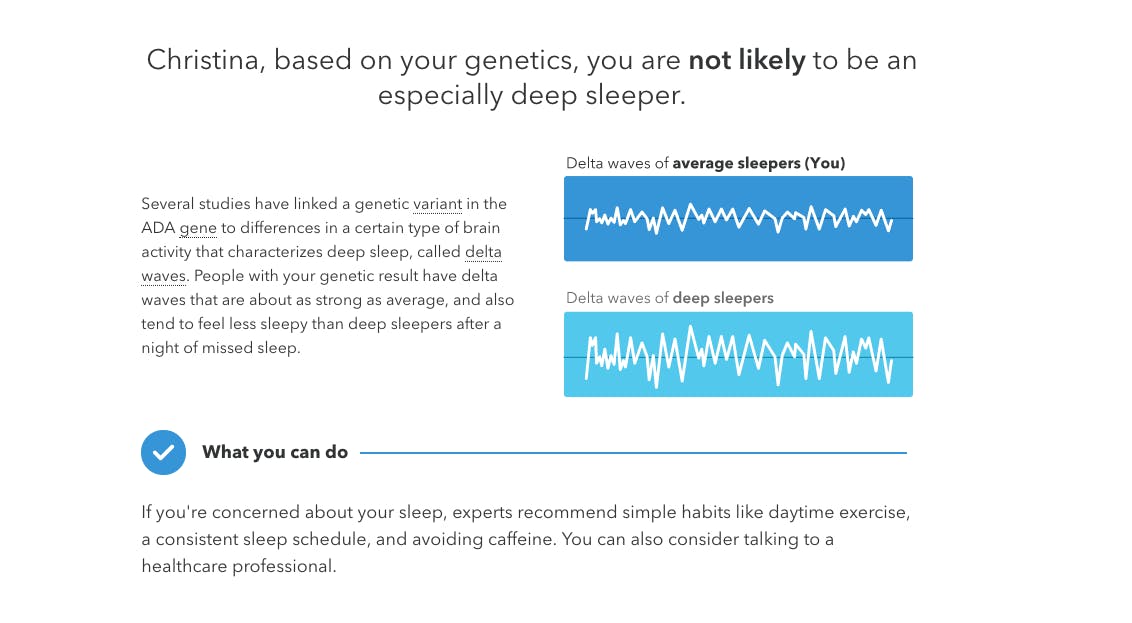
And apparently, I’m more likely to shift around while I sleep.
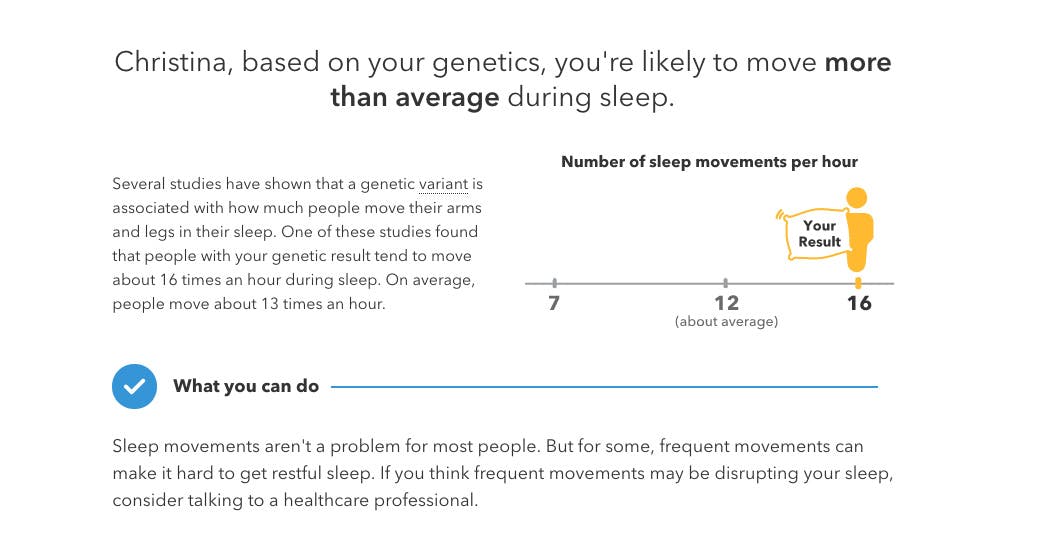
After answering a few questions about myself, 23andMe also predicted my average wakeup time based on my genes, age, and lifestyle. I’m on the night owl end of the spectrum—if I were more of a morning person, I’d likely wake up about 30 minutes earlier.
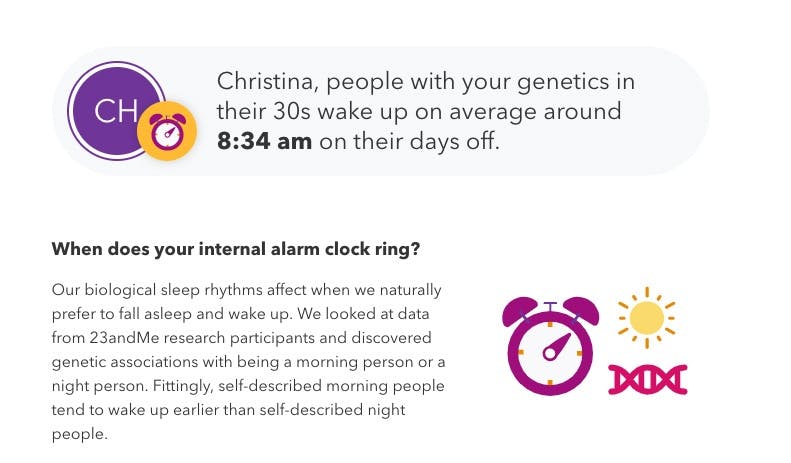
ORIG3N, another at-home genetic testing company, is set to release sleep-related DNA kits soon, according to Men’s Health. ORIG3N already offers a test for children that analyzes how much sleep they need based on their genes.
So, can taking a DNA test improve your sleep?
Whether your doctor ordered a genetic test suggesting you’re at risk for a sleep disorder or you learn you’re not getting adequate deep sleep from an at-home DNA test as I did, the results can help you make useful decisions, says Winter.
He points out that it often takes people 10 to 15 years to be diagnosed with narcolepsy after they first experience symptoms, but a genetic test may speed up this process. “If someone had figured out earlier that they had this disorder, they could’ve been treated sooner and their life would be a different story,” he says.
And if someone learns they could use a little extra deep sleep,” maybe that person would be more careful about sleep,” says Winter. That means doing things that are conducive to good sleep, like exercising more and adjusting the temperature of your bedroom (ideally it should be between 60 and 67 degrees).
Keep in mind, though, that it’s entirely possible to become obsessed with your results, Winter says. Stressing out too much over your genetics can lead to more disruptive sleep, which is the opposite of what you want.
Since getting my 23andMe results, I’ve taken a few steps to improve my deep sleep quality. I activated the Night Shift feature on my phone so the screen would give off less of its disrupting blue light, and I cut back on the amount of time I spend on my phone in bed by setting limits on my social media apps. I also try to stop eating and drinking three hours before bedtime whenever I can—otherwise I experience heartburn that keeps me awake at night.
While I can’t say for certain that I’m getting more deep sleep, I do feel more well-rested.
To help you get a jumpstart on sleeping better, we’ve put together some of our best advice:

